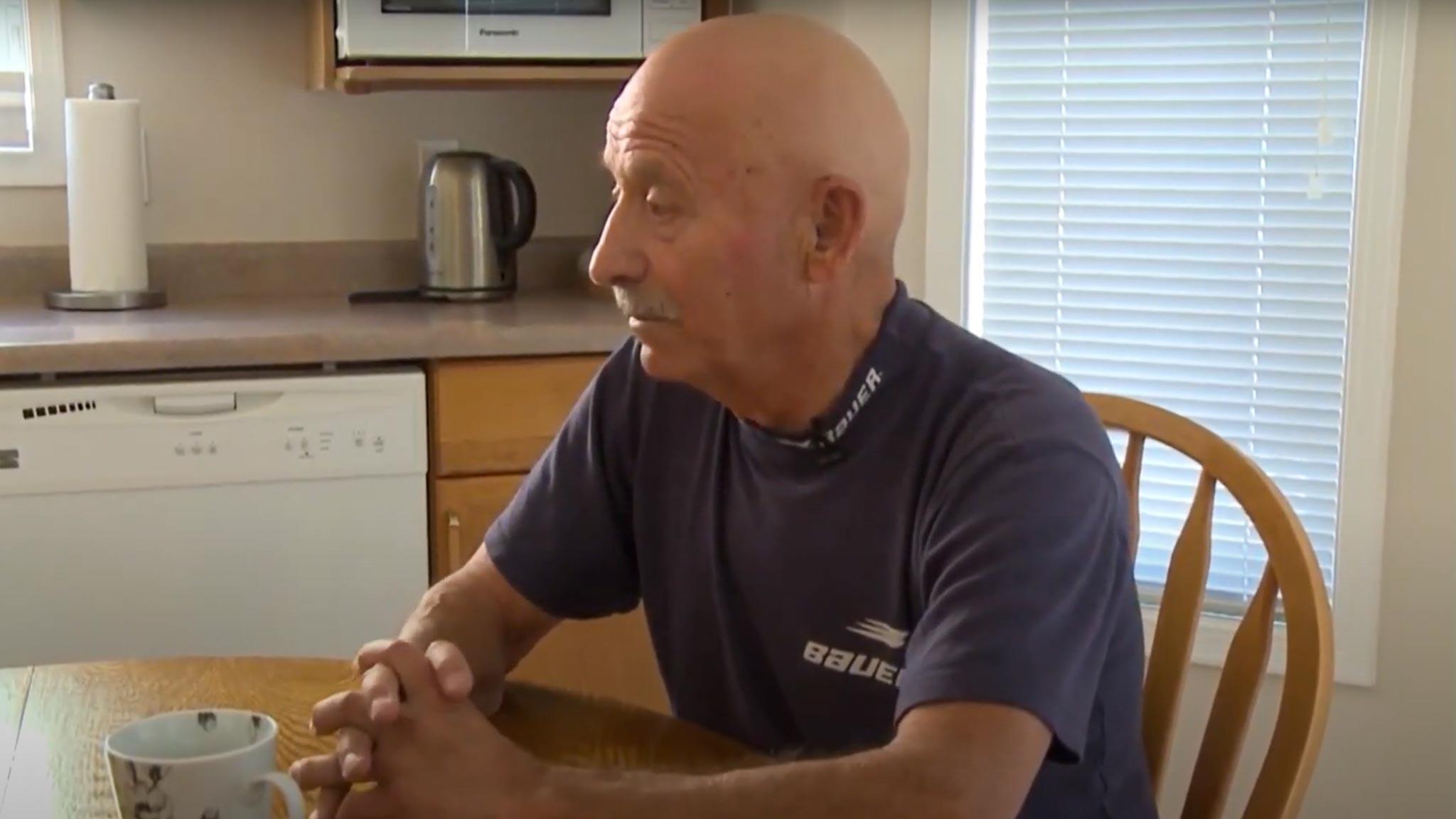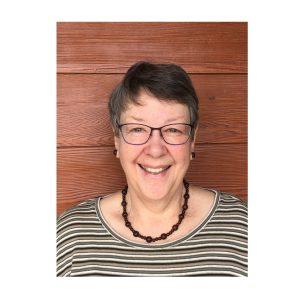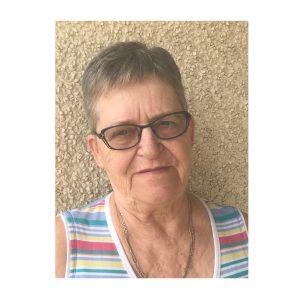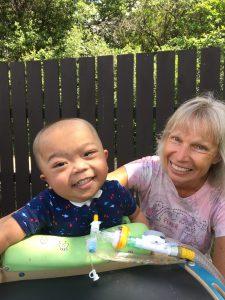Life was wonderful and busy for Ed and his wife Wendy: two grown families and grandchildren from their previous marriages; hockey; kaiser; travel; friends. While Ed had retired from his job as a federal meat inspector, Wendy still worked full-time as a dental hygienist.
“One day Wendy started having trouble with one of her toes,” says Ed. “She couldn’t move it right, it wasn’t feeling quite right.” And soon after, at the age of 58, Wendy learned she had Amyotrophic lateral sclerosis. ALS is a disease that destroys nerve cells and gradually paralyzes the person.
Ed credits Wendy’s family doctor for quickly running all the proper tests, then sitting down with the couple. “Diagnosing an ALS patient is the last thing a doctor wants to do, because there’s no cure. But Wendy had two siblings that had already died of ALS,” Ed adds sadly, and winces. “I think she almost expected that she’d get it.”
This wasn’t the first time Ed had dealt with such a devastating circumstance. His first wife Linda had passed away in 2002 of colorectal cancer. “My wife ended up dying at home, she wanted to be at home,” he says, nodding gravely. He says his daughter, and an aunt and a close friend all provided immeasurable support for her to do that, as he was still working. However, this second time around he was the primary caregiver.
“Wendy was in a wheelchair or in bed, so I was chief cook and bottle washer around the house,” he says. “Wendy’s occupational therapist was just so good. She suggested we get a hospital bed, and a manual wheelchair – then an electric wheelchair – plus the wheelchair lift.” These aids came mostly from the Saskatchewan Abilities Council (SAB). “They were just so excellent with us,” says Ed. “Because of ALS and how quick it moves, they don’t fool around. The OT brought us over an overhead lift to try, it was to get Wendy out of bed. It worked well, so I bought one – that was one thing we had to buy ourselves.” As well, the SAB provided a lift to get Wendy’s wheelchair into the van so that Ed could drive her to Sherbrooke Community Centre twice a week where they had the equipment to lower her into a submerged bath. Meanwhile, two Home Care workers came in seven days a week to sponge bathe, toilet, and dress Wendy.
“We had lots of friends that would visit too,” says Ed appreciatively. “Wendy’s co-workers, the girls, would bring a meal over once a month. I would get to be in the girls’ club that night … I just had to provide a bottle of wine,” he smiles. And the kaiser group would come over once a month too, to play cards or just to visit. “The last thing that she lost control of was her hands,” says Ed. “So she was still able to hold the cards, and to run the toggle switch on the wheelchair.”
Since 2013, Ed had played hockey two mornings a week with the 60-plus league at the Schroh Arena. Although he’d missed 20 years of playing when family and career were most busy, he was grateful to be back in the game. “Sitting with the guys after playing hockey – they’re just like family for me … it was a great support. At first I could go play hockey and Wendy could stay alone, but then it got to the stage I didn’t want to leave her alone anymore.”
It was at their monthly ALS support group meeting that the couple first heard of the Prairie Hospice Society (PHS) and the services they provide. “The Board Chair, Doug, came to the meeting and talked to us and told us about PHS. Well, I was on the phone so quick!” Ed quips, laughing.
The volunteer that was matched to Wendy, Anne, came over for an initial meeting. “That first visit, Anne sat down and they started talking … well, it was a match made in heaven!”
Anne would come over one morning a week – sometimes two – so that Ed could play hockey (which Wendy insisted he keep doing). “Anne was a super crossword puzzle woman and Wendy was a super sudoku woman, they’d do all the puzzles in the paper together. They were always sitting at the kitchen table, they’d sit and talk for three, three and a half hours while I was gone. They had some pretty personal talks I think … about life and about their husbands. I never asked the details though,” says Ed, respectfully. “It wasn’t my business.”
Anne became a friend to both Wendy and Ed over those next 18 months. “I always had a big garden,” says Ed. “I’d give her lots of veggies. It gave me such a sense of security to have someone like that in Wendy’s life. That made her whole day – otherwise she was stuck with me 24/7!”
In August of 2018, Wendy passed away; she was 60 years old. Her funeral was held at Knox United Church where she had taught Sunday School for years. Anne was at the funeral. And although she is now a companion to another hospice client, she and Ed still keep in touch. “Yeah, in fact she texted me last week and said we should have coffee, so I saw her this morning for coffee. She makes good muffins!” he declares, smiling.
Ed is reflective about his life now. “I guess I’ve grown from all this too, being more compassionate and more sensitive. I’m not as scared to go to someone that’s sick and talk to them. You don’t like to interfere in their life but you can reach out with a phone call at least – you’ve gotta try, anyway. Life is pretty damn precious, you’re not here very long.”
In fact, Ed has decided to become a volunteer for the Prairie Hospice Society himself; he’s signed up for the next round of volunteer training sessions. “For the last two years, my social life has been zero, so I’m looking forward to meeting some new people. Anne says the people in volunteer training are really good people … compassionate.”
“And what the PHS did for for Wendy and me – it did so much for her, and it gave me the freedom to do what I love to do. I wanted to give back,” he states in earnest. Then he adds, laughing: “I’ll do my damndest anyway!”




